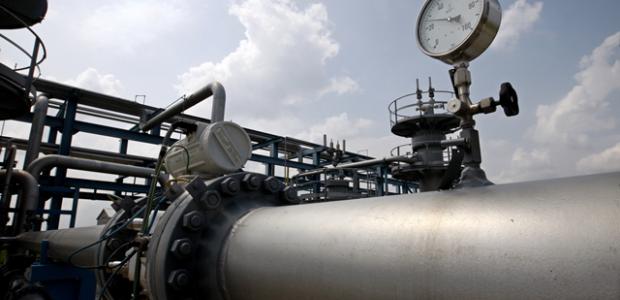Construction of the TAP (Trans Adriatic Pipeline), to bring new gas to the EU and increase the security of energy supply for Southeast Europe, is set to begin in June, based on the current schedule, following yesterday’s approval by the European Commission.
The prospect is extremely promising for Greek firms that have already been commissioned segments of the project or are presently vying for contracts linked to other sections.
Yesterday’s approval by Brussels essentially declares that the favorable conditions granted by Greece to the TAP consortium, especially ones concerning taxation for a 25-year period from the launch of commercial activity, are compatible with EU law concerning state aid and do not distort competition in the EU market.
The European Commission’s decision, noting that EU law is not violated, means that no other obstacles lie ahead, giving the green light for the TAP project’s development.
Greece’s bolstered geopolitical standing, promising a positive and direct impact on the national economy, stands as a major benefit gained courtesy of the prospective gas pipeline, to run through northern Greece, Albania, and across the Adratic Sea to Italy.
The expected boost for local employment and commercial activity is another benefit. It is estimated that nearly 10,000 jobs will be created in Greece, direct and indirectly, as a result of the TAP project’s development. The involvement of Greek construction companies, as well as supply of local materials, is another plus for the local economy.
According to the TAP consortium, some 150 Greek firms, small and medium-sized, have already signed sub-contract agreements with the consortium. This figure does not include the major firms that succesfuly took part in tenders for contracts concerning construction and supply of materials.
Pipelines
Corinth Pipeworks, a subsidiary firm of Viohalco, belonging to the Stasinopoulos corporate group, has already signed a deal to supply large-diameter pipelines covering TAP’s overland course through Greece, roughly 495 kilometers long. The Greek firm was up against Japanese company Marubeni-Itochu Steel, a global powerhouse, in the tender for this supply agreement.
Corinth Pipeworks, which has invested over 65 million euros for a new production line manufacturing high-pressure overland and underwater pipes, is expected to begin supplying its pipelines within 2016 before completing the delivery in 2017.
Construction
J&P-Avax, as part of a consortium with Italy’s Bonatti, has been awarded a contract through an international tender to construct two of the pipeline project’s three Greek segments The third segment will be constructed by a consortium made up of Ellaktor and France’s Spiecapag. This consortium is also vying for a segment within Albanian territory. The GEK Terna group appears to be contesting a contract for the construction of compressor stations.
The contracts for the TAP project’s three Greek segments, totalling 550 kilometers, are each worth roughly 230 million euros.
Besides the TAP project’s 550 kilometers of overland pipelines to run across Greece, a further 211 kilometers will be installed in Albania, and 8 kilometers in Italy.
Cables
Two more international tenders expected to attract Greek industries are currently in progress. One tender concerns the TAP pipeline’s SCADA (supervisory control and data acquisition) system, and the other supply of fiber optic cables measuring 1,550 kilometers. Local industry Hellenic Cables is participating in the latter tender.
TAP consortium
Trans Adriatic Pipeline AG is a joint venture company registered in Switzerland. Its shareholders are BP (20%), SOCAR (20%), Snam (20%), Fluxys (19%), Enagás (16%) and Axpo (5%).
The TAP pipeline is the European leg of the Southern Gas Corridor, which aims to connect the EU market to new gas sources. With an initial capacity of 10 billion cubic metres of gas per year, the pipeline will transport gas from the Shah Deniz II field in Azerbaijan to the EU market as of 2020.
The Trans Adriatic Pipeline is recognised as a project of common interest (PCI) in the framework of the EU’s Trans-European Energy Infrastructure Guidelines. PCIs are aimed at helping create an integrated EU energy market and are essential for reaching the EU’s energy policy objectives of affordable, secure and sustainable energy.
The Commission published its first list of PCIs in 2013. The list is updated every two years to integrate newly needed projects or to remove obsolete ones. The current PCI list was approved on November 18, 2015.





